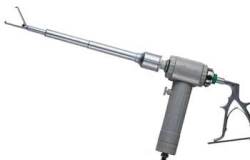Top Class Actions’s website and social media posts use affiliate links. If you make a purchase using such links, we may receive a commission, but it will not result in any additional charges to you. Please review our Affiliate Link Disclosure for more information.

The decision affects BCBS customers in three states who will no longer be covered if laparoscopic power morcellation is used during gynecologic surgery.
About 5.2 million people insured by Highmark Inc., a BCBS-affiliated company in Pennsylvania, Delaware, and West Virginia, will be denied coverage for laparoscopic power morcellation used in gynecologic surgery.
This decision comes in response to the U.S. Food and Drug Administration (FDA) Safety Communication in April, which discouraged the use of power morcellation during hysterectomy and other gynecological procedures because of the increased risk of dispersion of benign and malignant tissue through the abdominal cavity.
What is Morcellation?
Gynecologists use power morcellators when they perform laproscopic procedures, such as a hysterectomy or a myomectomy, in which they remove uterine fibroids. Morcellation is a minimally invasive procedure that helps speed recovery, limit scarring and blood loss, and reduce the risk of infection. These instruments have rotating blades that break large tissue masses into small fragments. Broken down tissues are then vacuumed out of the body.
The inherent risk of laproscopic power morcellation is the dissemination of the broken-up tissue. Benign tissue can become implanted on abdominal structures and organs, resulting in conditions such as fibroids, endometriosis, and adenomyosis, potentially requiring further surgery.
However, while doctors can diagnose most forms of cancer before an operation, a rare form called leiomyosarcoma or uterine sarcoma may mimic the appearance of benign uterine fibroids in medical imaging and is often undetectable in preoperative testing. Frequently, this aggressive cancer is diagnosed post-surgery after tissues are examined by a pathologist. Unfortunately, if a power morcellator was used to extract that tissue, the hidden cancer may have been spread, becoming metastatic leiomyosarcoma, which significantly worsens the patient’s likelihood of long-term survival.
The FDA warned in April that the device can worsen cancer. The top U.S. morcellator maker, Ethicon, a unit of Johnson & Johnson, suspended sales of all its morcellation devices as of April and in an urgent Medical Device Market Withdrawal dated July 30, Ethicon initiated a “worldwide voluntary market withdrawal” of all Ethicon morcellation devices that remain on the market.
Many hospitals have also curtailed the use of power morcellation devices.
Power Morcellation Lawsuits
Dozens of lawsuits filed by women whose cancers rapidly worsened after morcellation have been filed against makers of power morcellators alleging failure to warn. However, some doctors are still performing hysterectomies and uterine fibroid removals via uterine morcellation, despite the FDA warning.
Do YOU have a legal claim? Fill out the form on this page now for a free, immediate, and confidential case evaluation. The morcellation cancer attorneys who work with Top Class Actions will contact you if you qualify to let you know if an individual lawsuit or class action lawsuit is best for you. [In general, morcellator cancer lawsuits are filed individually by each plaintiff and are not class actions.] Hurry — statutes of limitations may apply.
ATTORNEY ADVERTISING
Top Class Actions is a Proud Member of the American Bar Association
LEGAL INFORMATION IS NOT LEGAL ADVICE
Top Class Actions Legal Statement
©2008 – 2024 Top Class Actions® LLC
Various Trademarks held by their respective owners
This website is not intended for viewing or usage by European Union citizens.
Get Help – It’s Free
Join a Free Morcellation Cancer Class Action Lawsuit Investigation
If you or a loved one were diagnosed with cancer in the uterus, pelvis or abdomen within two years of undergoing surgery for a myomectomy (removal of fibroids), hysterectomy (removal of the uterus), oophorectomy (removal of the ovaries), or salpingectomy (removal of fallopian tubes), you may have a legal claim. See if you qualify by filling out the short form below.
An attorney will contact you if you qualify to discuss the details of your potential case at no charge to you.
Oops! We could not locate your form.












